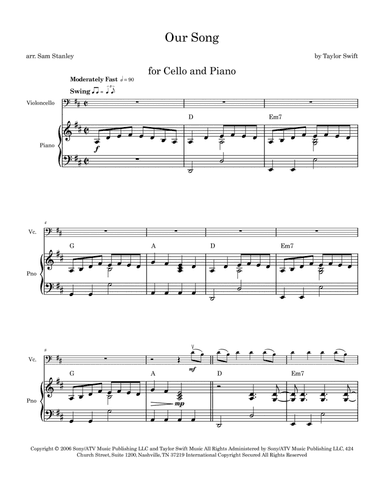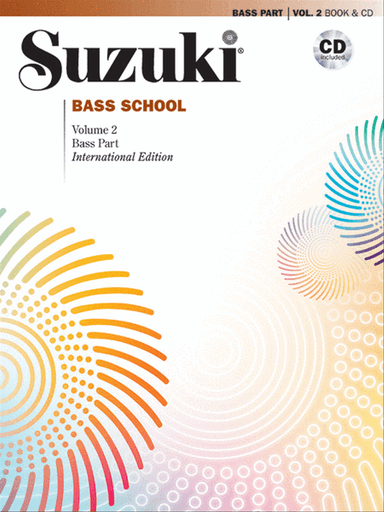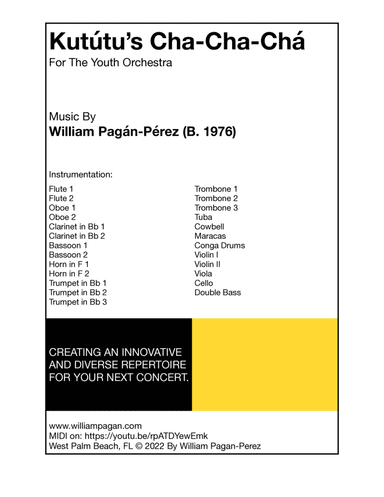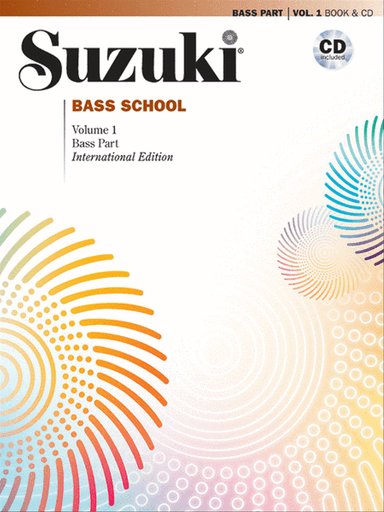Unavailable
Suzuki Bass School, Volume 3 is currently unavailable
We can no longer provide this arrangement through Sheet Music Stores. The listing stays online so you can learn about the piece and explore alternatives.
Try these next steps
- Discover similar sheet music curated for you below.
- Search for “Suzuki Bass School, Volume 3” across our catalog.
About this arrangement
Bass SKU: AP.0380 Volume 3. International Edition. By Gary Karr. This edition: International. Method/Instruction; String - Bass (Suzuki); Suzuki. Suzuki Bass School. CD. 1 pages. Alfred Music #00-0380. Published by Alfred Music (AP.0380). ISBN 9780874873801. UPC: 029156933048. English.Teach bass with the popular Suzuki Bass School. The Suzuki Method of Talent Education is based on Shinichi Suzuki's view that every child is born with ability, and that people are the product of their environment. According to Shinichi Suzuki, a world-renowned violinist and teacher, the greatest joy an adult can know comes from developing a child's potential so he/she can express all that is harmonious and best in human beings. Students are taught using the mother-tongue approach. Each series of books for a particular instrument in the Suzuki Method is considered a Suzuki music school, such as the Suzuki Bass School. Suzuki lessons are generally given in a private studio setting with additional group lessons. The student listens to the recordings and works with their Suzuki bass teacher to develop their potential as a musician and as a person. This Suzuki Book & CD is integral for Suzuki bass lessons. The CD features recordings by Gary Karr, accompanied by Harmon Lewis. Titles: Moon over the Ruined Castle (Taki) * Minuet No. 2 (Bach) * Ode to Joy (Beethoven) * Andantino (Enjoyable Morning) (Suzuki) * Trilling Waltz (Dixon) * Sweet Georgia Brown (Bernie, Pinkard, Casey) * Largo from the New World Symphony (Dvorák) * Bourrée (Handel) * Gavotte (Gossec) * So What (Davis) * A Gaelic Melody (Minkler, arr. Dixon) * L'Elephant (Saint-Saëns) * Scherzo (Webster). About Suzuki MethodThe Suzuki Method is based on the principle that all children possess ability and that this ability can be developed and enhanced through a nurturing environment. All children learn to speak their own language with relative ease and if the same natural learning process is applied in teaching other skills, these can be acquired as successfully. Suzuki referred to the process as the Mother Tongue Method and to the whole system of pedagogy as Talent Education. The important elements of the Suzuki approach to instrumental teaching include the following:an early start (aged 3-4 is normal in most countries); the importance of listening to music; learning to play before learning to read; -the involvement of the parent; a nurturing and positive learning environment; a high standard of teaching by trained teachers; the importance of producing a good sound in a balanced and natural way; core repertoire, used by Suzuki students across the world; social interaction with other children. Suzuki students from all over the world can communicate through the language of music.
Related sheet music

Our Song
taylor swift

Suzuki Cello School, Volume 5
dr. shinichi suzuki

Suzuki Bass School, Volume 2

Music from Around the World for Solo and Ensemble, Viola/Violin 3
donald miller

Suzuki Bass School, Volume 3

Kutútu's Cha-Cha-Chá

Suzuki Bass School, Volume 3

Concerto for Harpsichord and Strings No. 4 A major BWV 1055
johann sebastian bach

Joy In The Journey
michael card

Water Music HWV 348-350
george frideric handel

Concerto for Harpsichord and Strings No. 4 A major BWV 1055
johann sebastian bach

Suzuki Bass School, Volume 1
bass performed by gary karr